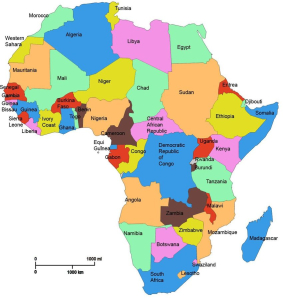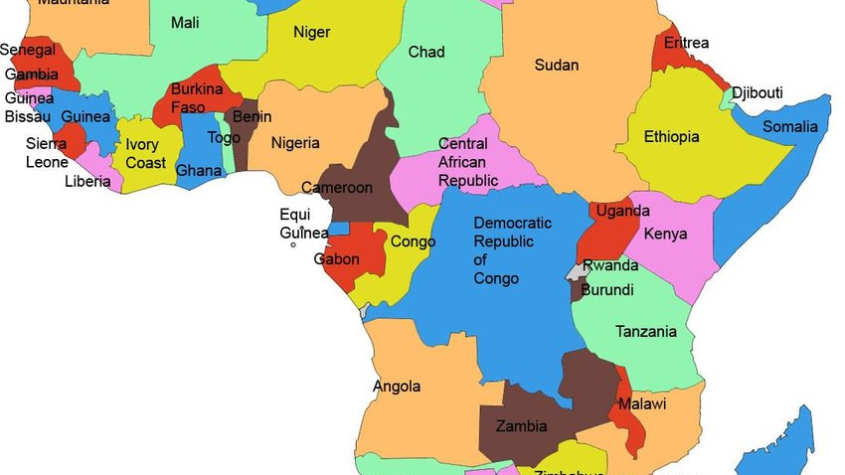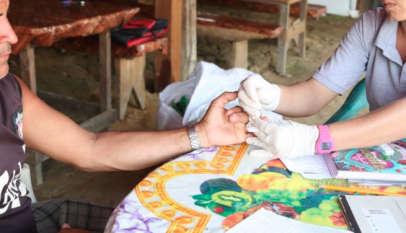OP-ED | In 2023, what can Africa learn from the 1980s? By Hannah Ryder
Can Africa learn the lessons of history and work with a much wider range of multilateral partners to help it tackle the challenges of 2023 differently and better?

It is unusual to start off a forecast for the New Year with a reference to nearly 40 years ago, but when it comes to Africa’s economic prospects in 2023, the year 1984 is particularly instructive.
On the African continent, 1984 was the year in which famine in Ethiopia reached a major climax – and the Band Aid charity song “Do They Know It’s Christmas” raised millions to support the cause.
It was the year in which Nelson Mandela saw his wife for the first time since he was imprisoned by apartheid South Africa in 1964. Archbishop Desmond Tutu was awarded the Nobel Peace prize. It was the year in which Nawal El Moutawakel became the first African female Muslim to win a gold in the Olympics, and Cameroon beat Nigeria to take its first championship in the African Cup of Nations.
But perhaps hanging over all these milestones was what some might now term a “polycrisis” at the global level. Hindsight tells us that African countries were about to bear the major part of the brunt. A few years prior, global interest rates had been raised rapidly to counter the inflation caused by the 1979 oil price shock – which then US President Jimmy Carter described as “the moral equivalent of war” – due to the Iranian revolution.
In 1984, while some African countries such as Zimbabwe had only recently won their independence, others had been independent states since the early 1960s, and had been busy investing in their new nations. Many had built new infrastructure – hydropower stations, roads and railways.
Some did so with finance that had been gained from commodity price increases, but others depended on external loans from bilateral, multilateral and even to a degree private lenders – mostly denominated in dollars at fairly low concessional interest rates.
This made sense. Public utilities such as energy or transport needed long-term, cheap investment, otherwise their outputs would have been unaffordable to populations that were still working to escape the poverty left behind by colonialism. They also needed to be affordable to the burgeoning industries that were being built to deliver the degree of self-sufficiency in production that many African leaders felt was needed.
Similar predicaments
Fast-forward to today, and in many ways, while the detail is different, the African continent is in a very similar predicament – as is the world.
In some ways, things look good, and almost certainly better than 1984. Our African Cup of Nations is stronger than ever, South Africa has won the fight against apartheid, and Africans are winning global prizes not just for peace but also for architecture.
All this has also come with new investment since the early 2000s and a zeal for the continent’s progress that is perhaps as strong as that of the pan-Africanist leaders in the years following independence. This year, 2022, saw the first shipment of locally made car batteries and tea from Kenya to Ghana under the new zero tariffs of the African Continental Free Trade Area (AfCFTA), as well as the agreement of harmonised investment protocol rules.
As in the 1960s and 1970s, African countries have used loans – this time including massive finance from China’s banks and private sector – for new roads and railways, energy stations, and other infrastructure, and resumed a push for hundreds of new special economic zones.
Yet Africa’s sovereign debt levels are as low, relative to the size of its economies, as they were in 1984 – an average on our continent of around 57%.
Challenging situation
So does this mean 2023 holds excitement, and even more promise than 2022? Perhaps. The IMF does forecast, for instance, that next year five African countries will be among the 10 fastest-growing globally.
However, going back to 1984, we must remember that many now call the 1980s and 1990s “lost decades” in the fight against poverty. From an African perspective these years can also be seen as the interrupted decades of pan-African ambitions. And there is a risk that the 2020s will be the start of a repeated trend.
That’s because today the global situation is as challenging as it was in 1984, if not more so. In the last few years, we have had the China-US trade war, the Covid-19 shock in 2020 and the Russia-Ukraine war creating an energy crisis and high inflation in the US and Europe, with dollar-denominated interest rates rising as a result.
In 2023, Covid-19 controls in China and the sustained trade war may create further uncertainties for our supply chains, leading to even higher prices on our shelves. And all of this will no doubt be exacerbated by a continued lack of global action on climate change.
Given the high exposure of African countries to sovereign debt, commodities and climate change, while the continent is still far from self-sufficiency in terms of energy and industrial output and capital and tourism flows lag, the potential for 2023 to lead to a significant deterioration is significant.
Reasons for optimism
So, given all of this, why am I optimistic for 2023 when it comes to the African continent?
It’s precisely because we have 1984. Today, we have the opportunity to look back, and not repeat the mistakes we made in 1984. We have the opportunity to push our bilateral and multilateral partners – including new ones such as China, India and Arab states – to take radically different actions to those taken in the 1980s and 1990s.
We also have many others – such as our Asian and Latin American and Caribbean peers – to learn from and work with. We can jointly push for international financial and trade reform. Indeed, we have a voice in these forums, some of which are now headed by Africans (not the case in 1984), and if President Macky Sall of Senegal has anything to do with it, Africa will also in 2023 become a permanent member of the G20.
If I’m being honest, the only way we, as Africans, can be optimistic about 2023 is if we learn from the past, and do things differently. That’s why 1984 is so important. I hope we will take heed.
Hannah Ryder is the CEO of Development Reimagined. This article was originally published on African Business. The views expressed in it are the author’s and do not necessarily reflect African Newspage’s editorial policy.













